Cart is empty!
Please add some product!
Shopping cart
Cart is empty!
Please add some product!
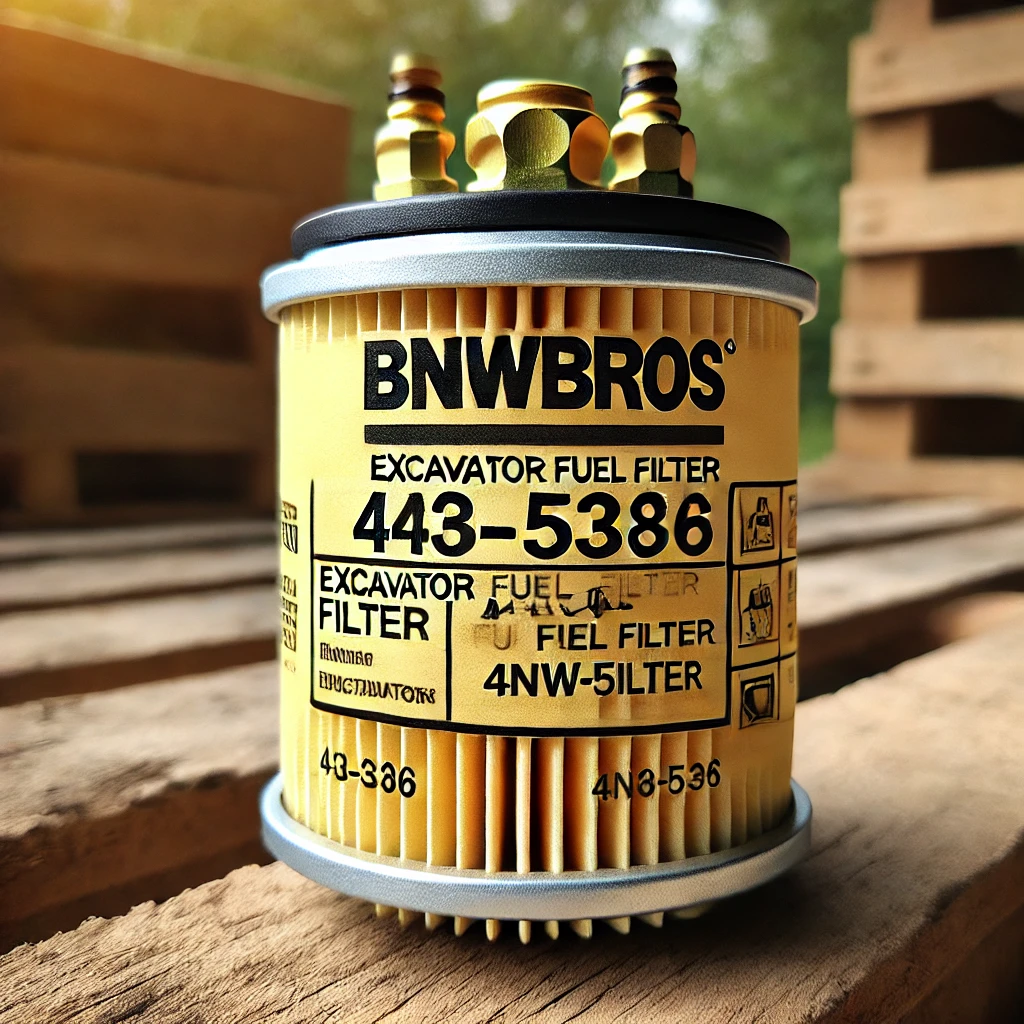
The Excavator Fuel Filter 438-5386 is one of the essential components that plays a vital role in maintaining your engine’s health and longevity. Without proper filtration, contaminants from the fuel can easily harm your engine. This fuel filter ensures that your machine performs at its peak, allowing you to work more efficiently and avoid unnecessary engine damage.
Fuel filtration, like that provided by the Excavator Fuel Filter 438-5386, is critical for engine longevity. Every excavator relies on a clean and efficient fuel flow, which makes the engine fuel filtration process so essential. Keeping the fuel free of dirt, rust, and other contaminants ensures that the fuel burns cleanly and powers the engine optimally. A clean engine results in fewer breakdowns, higher fuel efficiency, and a longer life for your heavy machinery.
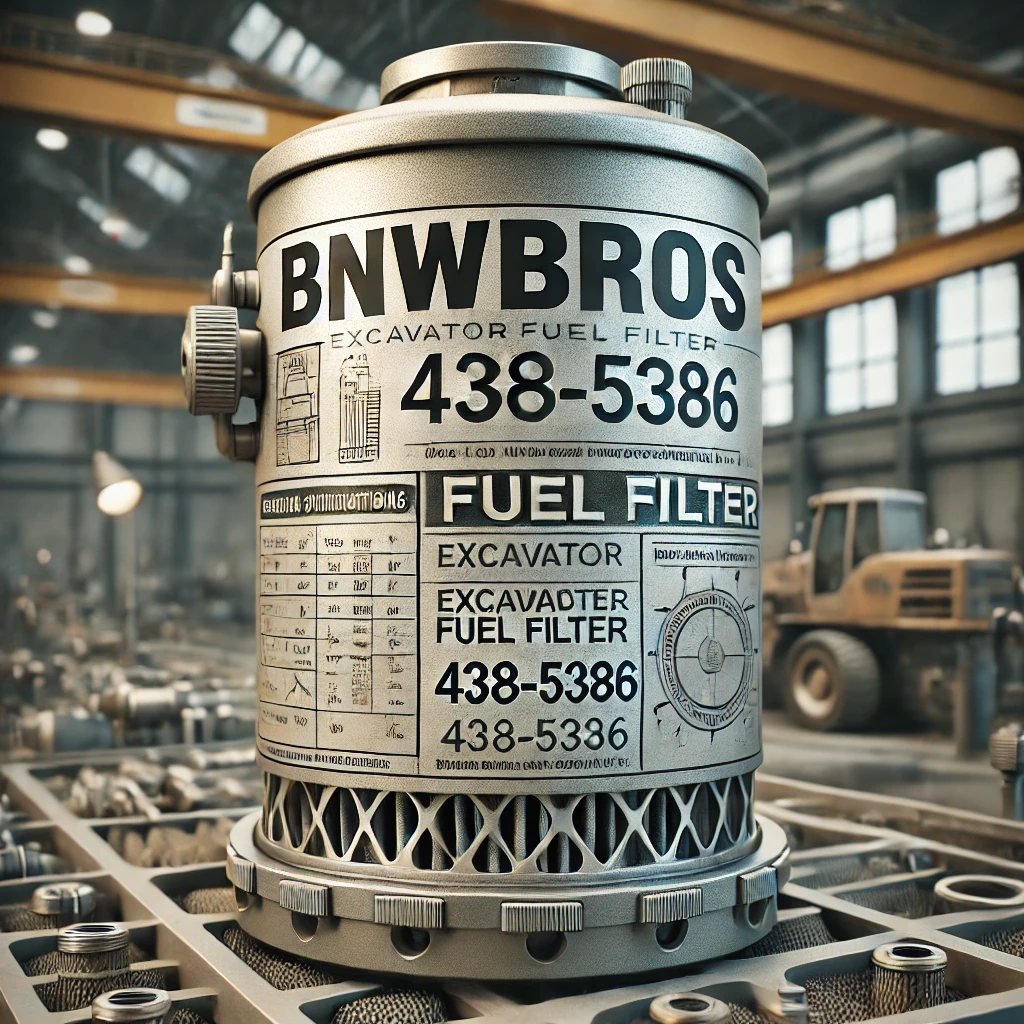
This fuel filter is designed to remove particles from the fuel before it reaches the engine. For large machines like excavators, clean fuel is key to avoiding costly repairs. The diesel fuel system parts, such as the fuel injectors, require clean, filtered fuel for proper operation. A premium automotive fuel component like this is built to catch the finest particles, preventing them from clogging your fuel system and causing damage over time.
The engine protection fuel filter ensures that no contaminants enter your system. This helps maintain proper fuel flow and prevents wear and tear. Using an OEM fuel filter replacement guarantees the right fit and performance, providing long-term engine care and peace of mind.
Maintaining a reliable fuel system is essential for any vehicle, particularly for construction equipment. The engine fuel flow optimization made possible by using a quality fuel filter ensures smooth operation of your diesel engine. A clean and properly flowing fuel system is directly related to how well your engine performs under stress.
An excavator working at maximum efficiency uses less fuel. The fuel filter maintenance involved with using a genuine Toyota fuel filter or the Excavator Fuel Filter 438-5386 ensures that the diesel flowing into the engine is free from particles that could affect the combustion process. Cleaner combustion means higher vehicle fuel efficiency and better cost savings.
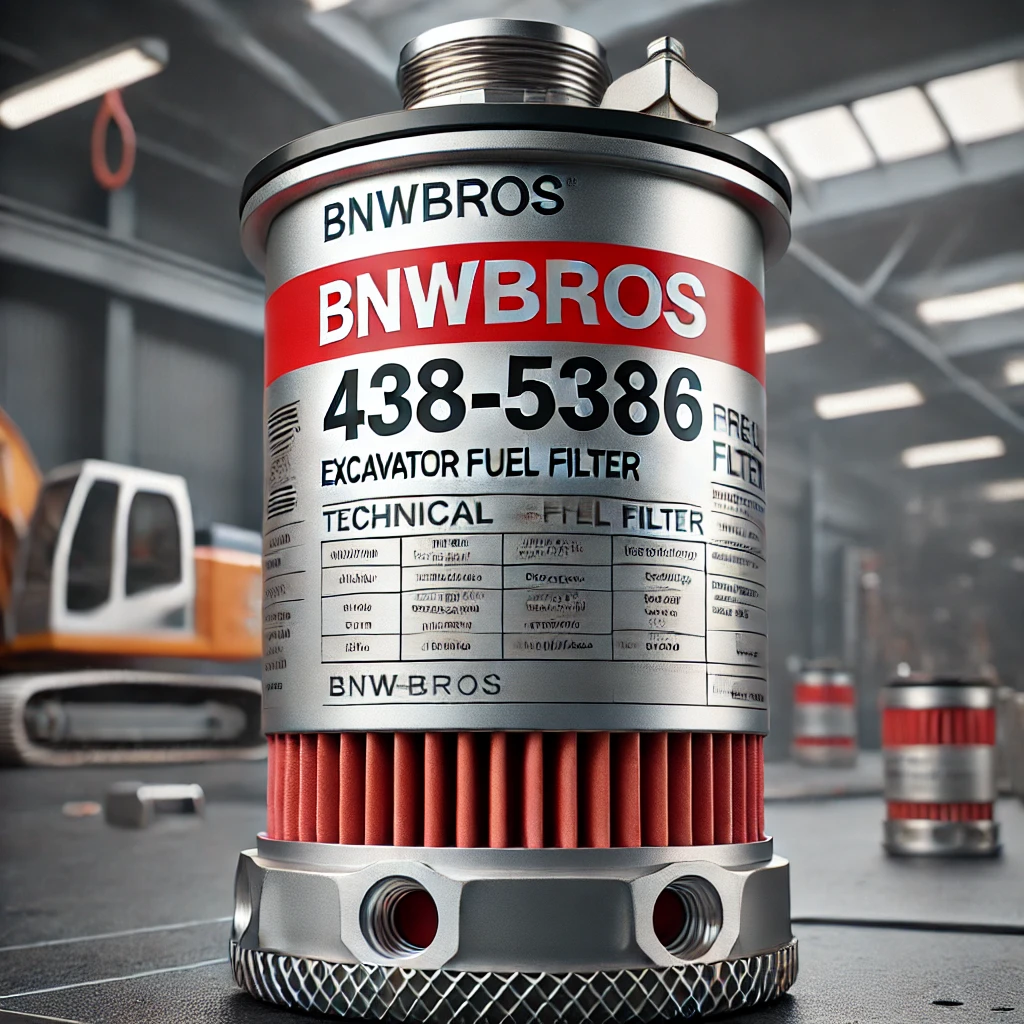
When it comes to choosing a fuel filter, it’s important to consider both the quality and the compatibility. The Excavator Fuel Filter 438-5386 is an excellent fuel filter for diesel engines, known for its high-performance fuel filtration capabilities. It is suitable for heavy-duty engines, offering long-lasting fuel filtration that minimizes the risk of engine blockages and helps the machine maintain full power.
While this filter is optimized for excavators, it’s important to understand the difference between filters for various vehicles. For example, the Toyota fuel filter or the fuel filter for Toyota Hilux may not have the same capacity or build quality needed for a heavy excavator. A premium engine fuel filter like the 438-5386 is specifically built to handle large fuel quantities with high contaminant removal efficiency.
Proper maintenance of your fuel filter can make a big difference in engine performance. Ideally, it’s a good practice to replace the fuel filter for Toyota Camry, or any excavator fuel filter, once every six months or as specified in the manufacturer’s manual. This ensures contaminants do not build up, which could lead to blockages and engine strain.
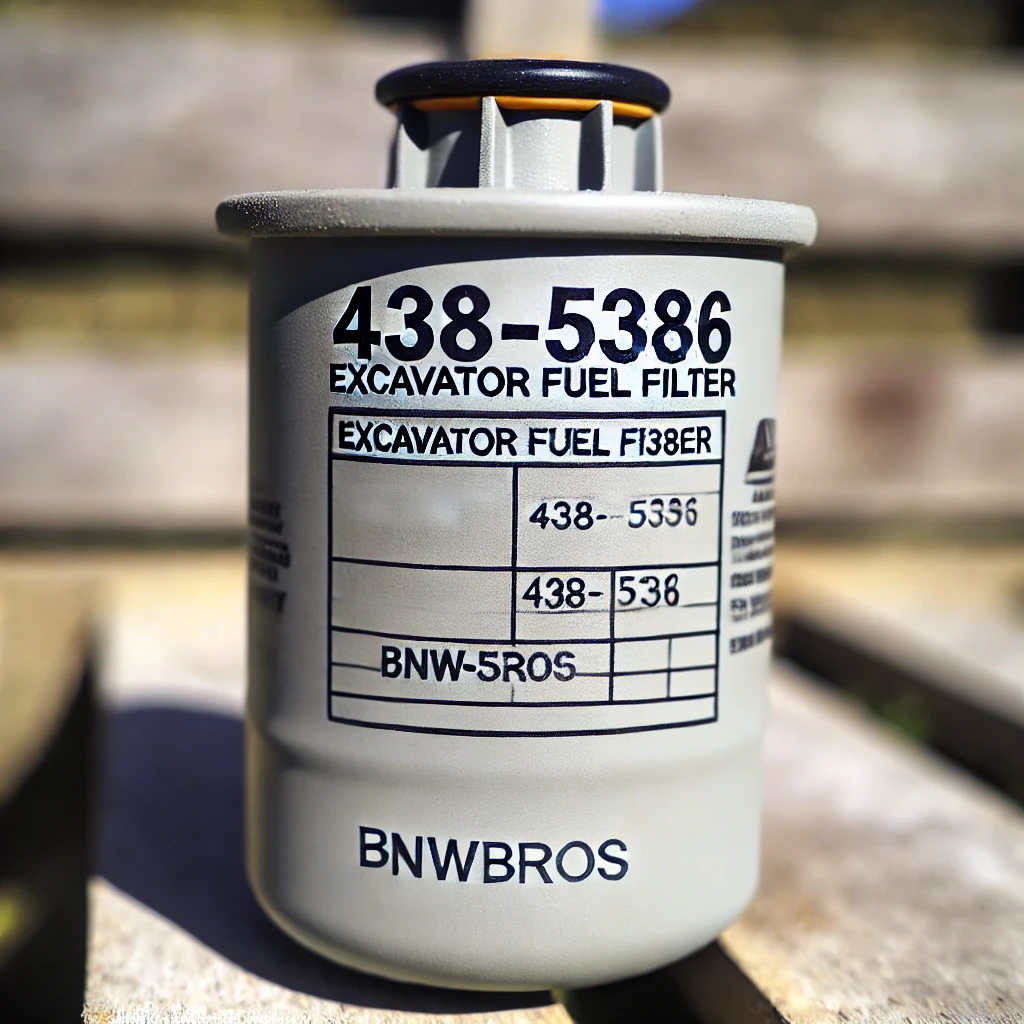
The diesel fuel filter for Toyota and the Excavator Fuel Filter 438-5386 share a common purpose: protecting the engine from harmful substances. Without effective filtration, an excavator’s fuel system could become compromised. Water, rust, and dirt are common contaminants that can impact fuel system reliability if not adequately filtered.
Contaminant removal from fuel is critical for engine health. The Excavator Fuel Filter 438-5386 uses advanced technology to filter out even the smallest of particles, ensuring your engine gets the cleanest possible fuel. This high-efficiency fuel filter traps particles, dirt, and any rust present in the fuel, which could otherwise damage your engine and reduce its performance.
When replacing an excavator fuel filter, it is always best to go for a genuine part rather than a generic one. A genuine Toyota fuel filter or an original Excavator Fuel Filter 438-5386 is designed to meet specific standards for your engine. Generic filters often fail to provide the long-lasting fuel filtration and high-performance fuel filtration needed to keep engines functioning effectively in demanding environments.
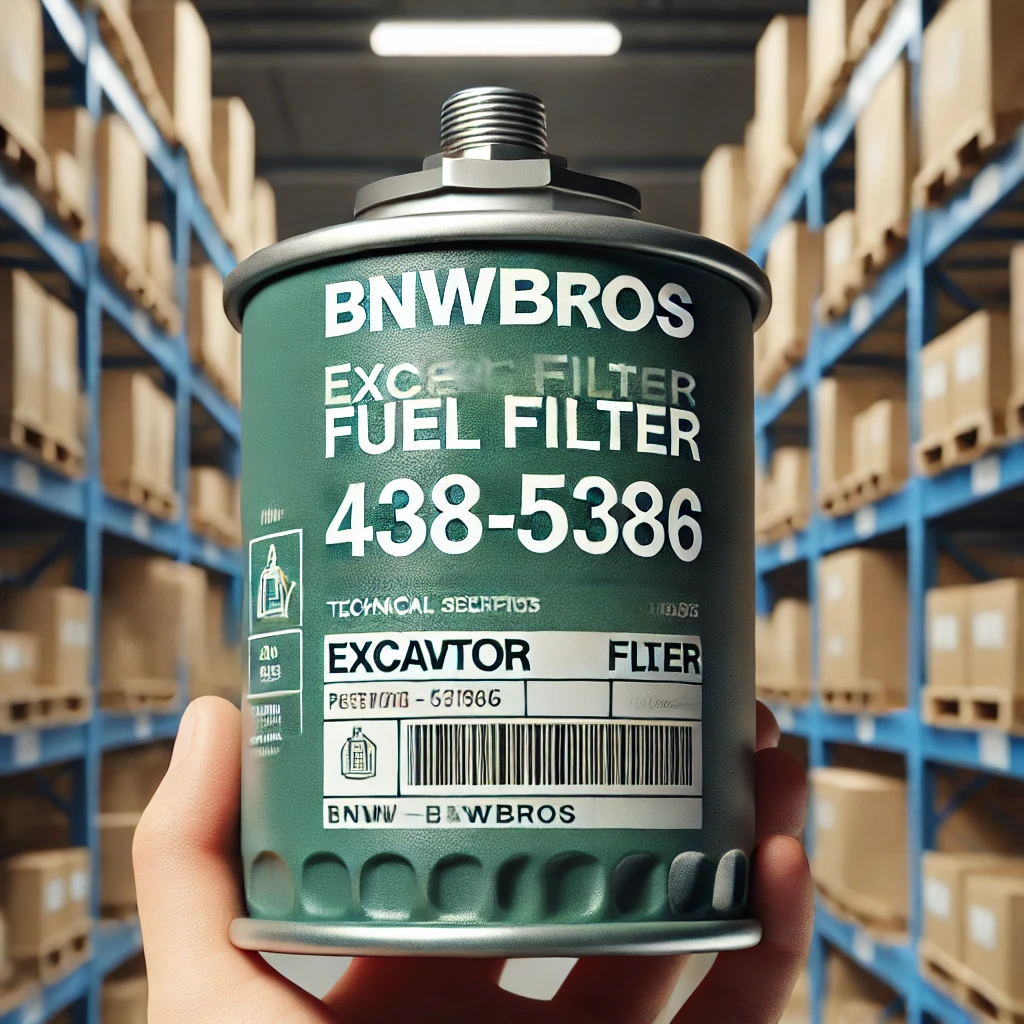
Many vehicle types require different fuel filters based on engine capacity and fuel system requirements. For example:
Keeping your excavator’s fuel system clean and well-maintained is the best way to ensure vehicle fuel efficiency. When contaminants enter the engine, they cause unnecessary wear and tear that leads to decreased performance. With long-lasting fuel filtration, a high-quality fuel filter makes sure your machine runs smoothly and economically.
Fuel filters play a significant role in the overall fuel system reliability. By preventing contaminants from reaching the engine, these filters support cleaner combustion. A high-performance fuel filtration system ensures that every bit of fuel entering the combustion chamber is clean, leading to better combustion and more power. This directly impacts your vehicle’s fuel consumption, making it more economical over time.

The Excavator Fuel Filter 438-5386 is an essential component for maintaining your excavator’s performance and ensuring engine fuel flow optimization. High-quality filters are the foundation of a reliable and efficient engine. Whether you’re running an excavator, a Toyota Camry, or any heavy-duty machinery, choosing a genuine, high-efficiency fuel filter is crucial.
Always prioritize fuel filter maintenance and select filters that are specifically designed for your engine. Remember, a clean fuel system means better engine protection, higher efficiency, and an overall longer-lasting vehicle. Keep your engines in top condition by choosing premium filters that ensure the best fuel filtration for fuel system reliability and engine protection.
Comments are closed